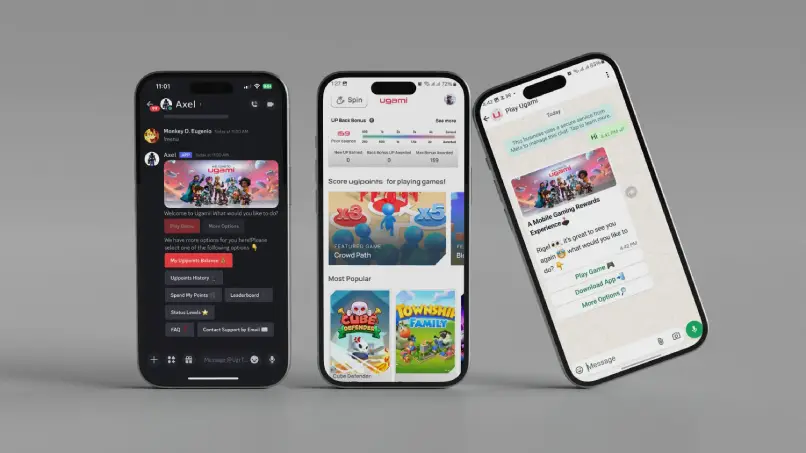Why Play-to-Earn Rewards Are Altering the Method You Play and Gain
The development of play-to-earn versions indicates a noteworthy shift in the video gaming landscape, welcoming gamers to discover not just the entertainment value of games however likewise their possible as income-generating systems. Recognizing these characteristics elevates relevant questions about the future of video gaming and the ramifications for both players and designers alike.
Introduction of Play-to-Earn Designs
Over the last few years, the video gaming market has actually experienced a considerable improvement with the introduction of play-to-earn designs, essentially changing exactly how players engage with electronic settings. This cutting-edge strategy enables players to acquire tangible benefits with their in-game activities, creating a change from typical pc gaming paradigms where enjoyment and competition were the key inspirations.
Play-to-earn designs take advantage of blockchain technology and non-fungible symbols (NFTs) to give players with ownership of in-game assets, which can be traded or cost real-world money. As a result, gamers are incentivized to spend effort and time into video games, promoting a sense of firm and monetary opportunity. play to earn rewards. This change has actually attracted a varied player base, including those that may have formerly checked out pc gaming as a simply entertainment task
Numerous platforms have actually arised, showcasing successful executions of this design, such as Axie Infinity and Decentraland. These systems have not only generated considerable income yet likewise sparked conversations around the sustainability and ethics of such financial systems. As play-to-earn models remain to develop, they assure to redefine the relationship in between players, designers, and the broader electronic economy, leading the means for a new period in gaming.
Advantages for Gamers
As players involve with play-to-earn versions, they open a range of benefits that prolong past plain entertainment. Unlike conventional video gaming, where gamers spend time and cash without substantial returns, play-to-earn systems permit gamers to earn copyright or in-game assets that can be converted to real-world value.
Additionally, play-to-earn models promote community structure amongst gamers. Players typically work together to attain shared goals, therefore growing social links that enhance the overall experience. This sense of neighborhood can result in cooperative gameplay, where gamers share approaches and sources, improving both personal and group success.
In addition, these versions can democratize access to pc gaming by permitting players from diverse financial backgrounds to benefit monetarily. By taking part in play-to-earn environments, individuals can gain abilities and understanding about blockchain technology, more expanding their career possibilities in the growing digital economic situation. Eventually, the advantages for gamers extend well past gameplay, impacting their social, financial, and academic landscapes favorably.
Difficulties in the Ecosystem
While the play-to-earn environment offers significant chances, it is not without its obstacles. Fluctuations in worth can hinder potential players that look for secure income streams.
One more obstacle is the threat of scams and deceitful systems that can torment the ecosystem. Players might run into deceitful platforms promising high benefits yet eventually resulting in monetary loss. Ensuring count on and safety is critical for the long-term viability of play-to-earn models.
Furthermore, the environmental effect of blockchain video gaming can not be forgotten. The power intake connected with mining and purchase handling elevates moral inquiries concerning sustainability. Video game programmers need to locate an equilibrium in between satisfying players and reducing ecological footprints.
Lastly, the regulatory landscape is still evolving, posing potential risks for programmers and gamers alike. Uncertain lawful frameworks can hinder innovation and restrict the development of play-to-earn environments. Attending to these difficulties is important click for realizing the complete capacity of this transformative video gaming paradigm.
The Duty of Blockchain Innovation
Blockchain innovation functions as the foundation of the play-to-earn environment, dealing with much of the obstacles previously outlined. By making use of decentralized ledgers, blockchain ensures openness and safety in transactions. Gamers can with confidence earn and trade in-game properties, understanding that ownership is proven and not subject to adjustment.

Tokenization browse around here of assets plays a vital role, providing players real ownership of their in-game items, which can be acquired, sold, or traded on various marketplaces. This motivates a lively secondary market, where players can monetize their abilities and time bought the game.
In addition, blockchain innovation makes it possible for interoperability between various video games and platforms, enabling gamers to carry their possessions throughout various environments. This flexibility not only boosts user experience but likewise advertises a more inclusive video gaming setting, ultimately reshaping the landscape of video gaming and earning.
Future Fads in Gaming
The gaming market gets on the edge of a transformative evolution, driven by emerging innovations and moving gamer assumptions. As play-to-earn versions gain traction, players are progressively seeking immersive experiences that mix entertainment with substantial rewards. This shift is prompting designers to innovate, concentrating on producing interesting gameplay that cultivates area and communication.
One remarkable fad is the imp source integration of virtual reality (VIRTUAL REALITY) and increased fact (AR), boosting the pc gaming experience by giving much deeper immersion and interactive settings. In addition, innovations in expert system are making it possible for a lot more advanced non-player characters (NPCs) and adaptive gameplay, tailoring experiences to individual gamer choices.

Final Thought
In final thought, the play-to-earn design is substantially transforming the gaming landscape by enabling gamers to obtain real-world value from their in-game tasks. This standard shift not just improves player engagement and financial investment however also elevates difficulties that should be addressed to make certain sustainability within the environment. As blockchain technology remains to assist in possession of digital properties, the future of video gaming promises additional development and possibilities for players across varied histories.